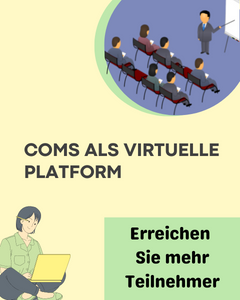Konferenzen > Informatik > Algorithmen und Datenstrukturen
Wählen Sie ein Land aus
ALLE LÄNDER (10)
1
Dagstuhl-Seminar — Revisiting the Foundations of Deduction in a New World
22. Feb 2026 - 27. Feb 2026 • Schloss Dagstuhl, Deutschland
Eintrags-ID:
1670567
Webseite:
2
Dagstuhl-Seminar — Intractability in Discrete Geometry and Topology
15. Mär 2026 - 19. Mär 2026 • Schloss Dagstuhl, Deutschland
Eintrags-ID:
1671272
Webseite:
3
Angular Camp — Angular Camp - Deep Dive Camp intense | April 2026 Berlin
22. Apr 2026 - 24. Apr 2026 • Berlin, Deutschland
Eintrags-ID:
1684614
Webseite:
4
Angular Camp — Angular Camp - Basic Camp | Mai 2026 Online
18. Mai 2026 - 20. Mai 2026 • Online, Deutschland
Eintrags-ID:
1684657
Webseite:
5
Dagstuhl-Seminar — Randomized Rounding in Algorithms, Statistics, and Economics and Computation
07. Jun 2026 - 12. Jun 2026 • Schloss Dagstuhl, Deutschland
Eintrags-ID:
1671545
Webseite:
6
Dagstuhl-Seminar — Temporal Graphs: Structure, Algorithms, Applications
14. Jun 2026 - 19. Jun 2026 • Schloss Dagstuhl, Deutschland
Eintrags-ID:
1671533
Webseite:
7
Dagstuhl-Seminar — Analysis of Algorithms Beyond the Worst Case
21. Jun 2026 - 26. Jun 2026 • Schloss Dagstuhl, Deutschland
Eintrags-ID:
1671552
Webseite:
8
Rigidity Theory meets Geometric Data Science for Applications in Chemistry and Biology
06. Jul 2026 - 10. Jul 2026 • Providence, Vereinigte Staaten
Eintrags-ID:
1680213
9
BIOMED DATA2026 — 2nd BIOMEDICAL DATA SCIENCE SUMMER SCHOOL & CONFERENCE
06. Jul 2026 - 17. Jul 2026 • Budapest, Ungarn
Eintrags-ID:
1697360
Webseite:
10
Bridging Theoretical Discrete Math Advancements with Open Source Resource Development
27. Sep 2026 - 02. Okt 2026 • Banff, Alberta, Kanada
Eintrags-ID:
1668810
Conference-Service.com stellt der Öffentlichkeit ein Kalendarium wichtiger Konferenzen, Symposien und sonstiger Tagungen im wissenschaftlich-technischen Bereich zur Verfügung. Obwohl das Verzeichnis mit großer Sorgfalt zusammengestellt und ständig aktualisiert wird, weisen wir auf die Möglichkeit von Fehlern ausdrücklich hin. Bitte vergewissern Sie sich immer beim Veranstalter, bevor Sie über die Teilnahme oder Nichtteilnahme an einer Konferenz entscheiden.
Stand vom 18. Februar 2026



